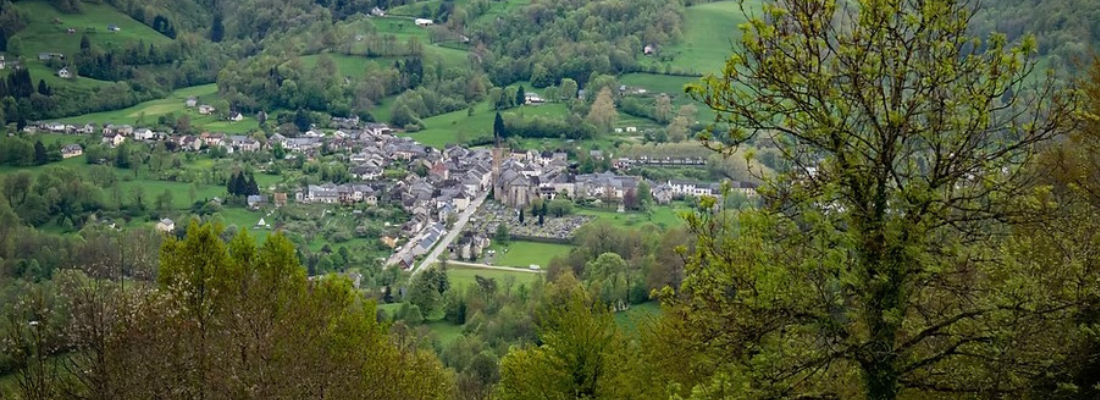Society and regional strategies Reading time 3 min
Just Scapes: a project for just transformations of rural landscapes in Europe
Rural areas are at the heart of the transformations envisaged by European climate policies to cope with the effects of climate change. However, these actions can be perceived as injustices by local stakeholders. Drawing on the notion of environmental justice and participatory action-research approaches, the European project Just Scapes aims to co-construct fair and sustainable transformations of rural landscapes.
Published on 13 February 2025

Starting in 2020, this project involves three rural regions in three different countries: Scottish Highlands, South and East Moravia in Czech Republic and the Ariège department in France. A team from the Dynamics and ecology of agroforestry landscapes (Dynafor) laboratory at the INRAE Occitanie-Toulouse center, led by Cécile Barnaud, is coordinating the French section.
Towards carbon neutrality in 2050: rural areas at the heart of this objective
In its Climate Plan, France has committed to achieving carbon neutrality by 2050. Rural areas are in the front line in achieving this goal. Not only do they need to store more carbon in soils and forests, they also need to reduce emissions from agriculture, while bringing production and consumption closer together.
This raises a number of questions about the transformations envisaged by climate policies, particularly in mountain areas shaped by pastoral livestock farming. Will existing financial support be called into question in the name of a necessary reduction in livestock farming? Or, on the contrary, will policies continue to encourage pastoralism, which enables carbon to be stored in pasture soils? In addition, will policies make it possible to allocate more land and subsidies to market gardening projects?
To answer these questions, the team chose to carry out its research in a study site in the Ariege Pyrenees: the Arac valley. Since the 1970s, pastoralism has coexisted here with a diversity of small-scale production, particularly market gardening.
The scientists wanted to approach these questions from the angle of environmental justice. Are the transformations envisaged by the Climate Plan fair or, on the contrary, perceived as injustices by local stakeholders? And, if so, how can we build ecological transformations that are fair and equitable for the various agricultural productions, while respecting the goal of carbon neutrality by 2050?
A participatory action-research project
This is a participatory research-action approach, i.e. the project is built with the various local stakeholders affected by these changes in land use. These include people who live and work in the valley, from livestock breeders and market gardeners to elected representatives and managers, from former residents to new arrivals.
In the Pyrenees, the Just Scapes project took place in several stages. First, semi-structured interviews were conducted with some sixty local stakeholders to understand the diversity of viewpoints and existing agricultural practices. Then, the scientists organized a series of participatory workshops with three main stages: a time for discussing the problems, a time for exploring solutions and a time for reflecting on the levers for action. In parallel, a creative writing workshop was organized to express and share emotions about the future of the valley.
These interviews and workshops provided initial answers to questions about environmental justice and the future of farming in mountainous areas. And at the level of the three countries, the project created a collection of testimonies on the visions of the territory of various inhabitants of the three regions involved.
The most denounced injustice: unequal access to land
The project's various approaches have identified four general themes of environmental injustice. Local stakeholders in all three countries denounce the burden of environmental efforts required of rural populations compared to urban populations, which is seen as unfair and disproportionate; a feeling of political powerlessness among inhabitants in these rural places, who regret that their voices are not heard more and considered in public decision-making; a lack of recognition of their values, knowledge and know-how; and finally, unequal access to land. This last issue emerges as the most important common demand, as it is not only seen as an obstacle to social justice, but also as a limiting factor to sustainability.
Research at all three sites highlights the role of subsidy schemes, linked to agriculture, forestry and the carbon market, in maintaining unequal access to land through financial support and incentives for the largest farms and landowners, while there are institutional and financial barriers for those pursuing other types of land use such as community forests or small diversified farms.
This land issue is a historically rooted injustice in rural areas. Yet it is essential to take it into account, as it lies at the heart of environmental justice issues in the context of "carbon neutrality" policies and the large-scale changes expected in rural areas. This means questioning historically constituted political-economic structures and land inequalities.
Today, these injustices are barriers to much-needed ecological transitions. If they are not tackled in depth and in a systemic way, local actors risk resisting change, entering into conflict and protesting, following the example of the major social movements that took place in France within the agricultural world in 2024 or protests about deer management in Scotland.
Reference:
Brown D., Bégou B. Clement F., Coolsaet B., Darmet L., Gingembre M., Harmáčková Z. Martin A., Nohlová B., Barnaud C. (2024) Conceptualising rural environmental justice in Europe in an age of climate-influenced landscape transformations. Journal of Rural Studies. 110 (2024) 103371, https://doi.org/10.1016/j.jrurstud.2024.103371
